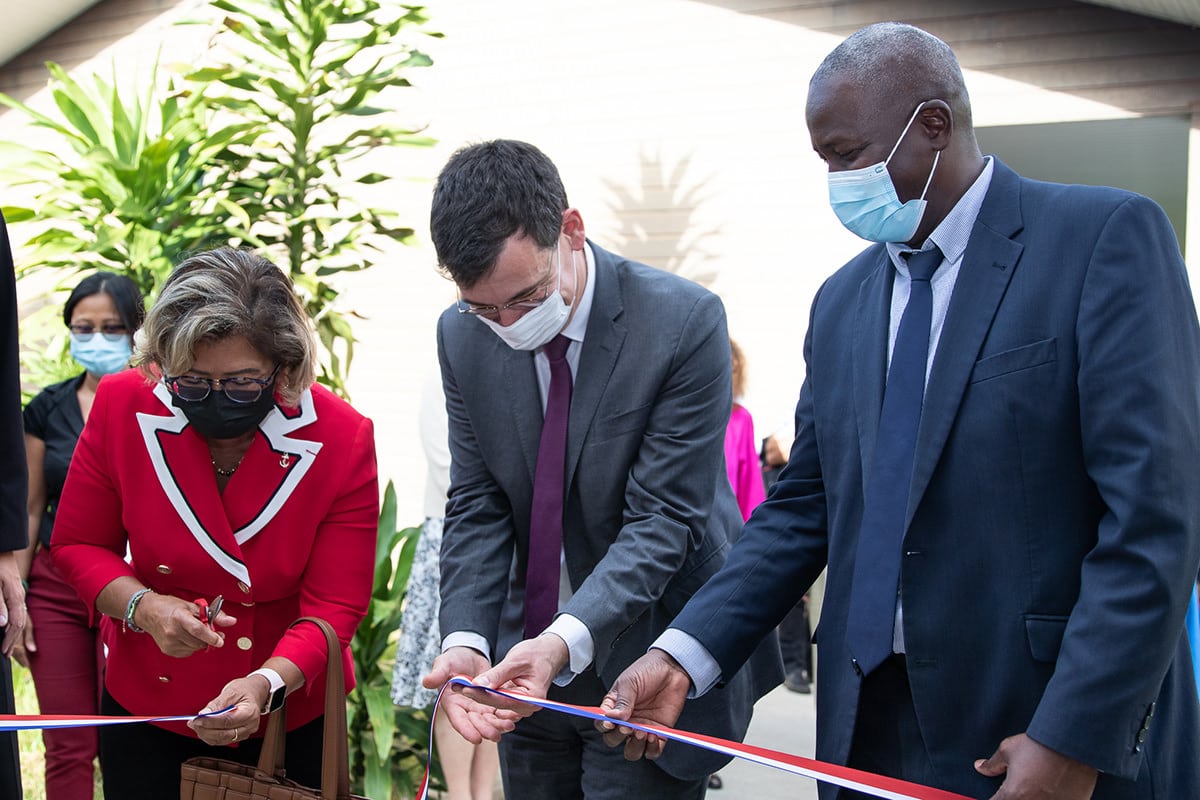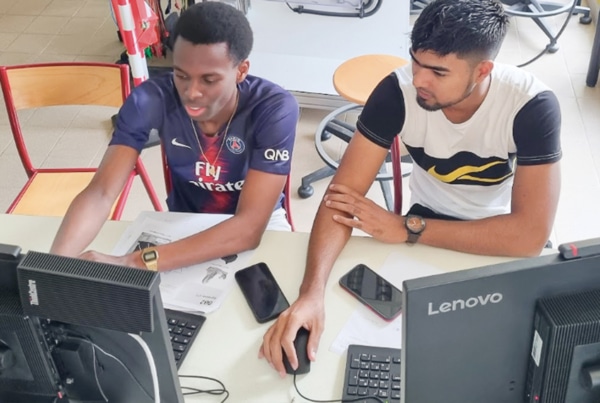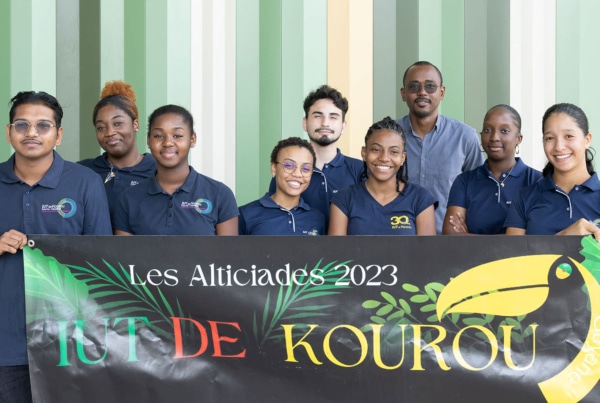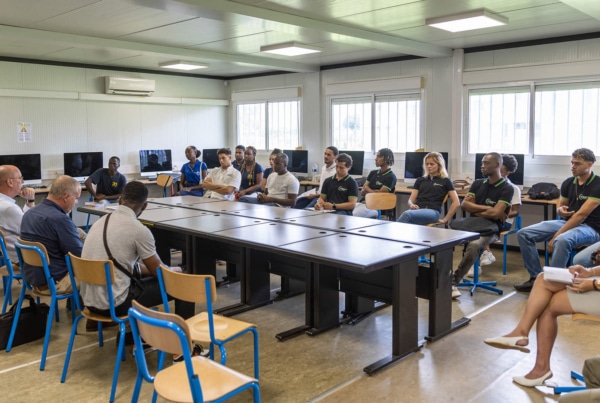
On Monday 26 July 2021, the Kourou IUT inaugurated the extension to its Bois-Chaudat campus. An additional 1,500m2 will be added to the existing premises. Bright, functional and comfortable, with a technical hall and new classrooms, the premises offer optimised study conditions and high energy performance.
E n just over 30 years, the Kourou IUT has come a long way! Opened in 1988 at the request of CNES, the IUT had just one training department: Electrical Engineering and Industrial Computing. Its purpose was to support the space base companies by training local technicians who would be recruited mainly in this sector.
Thanks to its ability to offer courses in line with the socio-economic realities of the region, the IUT has never ceased to evolve. As a major player in higher education in French Guyana, the IUT responds to demands for professionalisation and the skills requirements of various sectors. Today, the Institute has gone from offering a single course to offering 14 different options. It has 5 training departments: GEII (Electrical Engineering and Industrial Computing), R&T (Networks and Telecommunications), TC (Marketing Techniques), CS (Social Careers) and the latest, GCCD (Civil Engineering and Sustainable Construction). The IUT also has 250 students on two campuses: Bois-Chaudat (Kourou) and Troubiran (Cayenne).
On 26 July 2021, in the presence of around fifty guests (due to the health crisis), the President of the Université de Guyane and the Director of the IUT de Kourou inaugurated the extension to the Bois-Chaudat campus. The new extension was built to accommodate the new Civil Engineering and Sustainable Construction department, but also to provide greater comfort and modernity for campus users (both staff and students), as well as greater safety for practical work, with classrooms that meet the new standards in force. This new course is a response to the needs expressed by the construction and public works sector in 2016.
This expansion is a response, a strong sign that higher education is continuing to grow and that there is a real demand for it in French Guiana.




